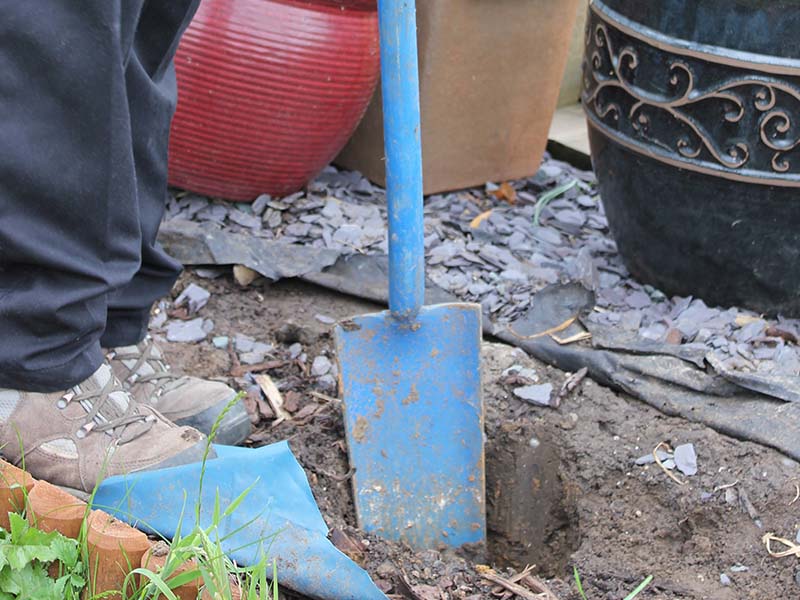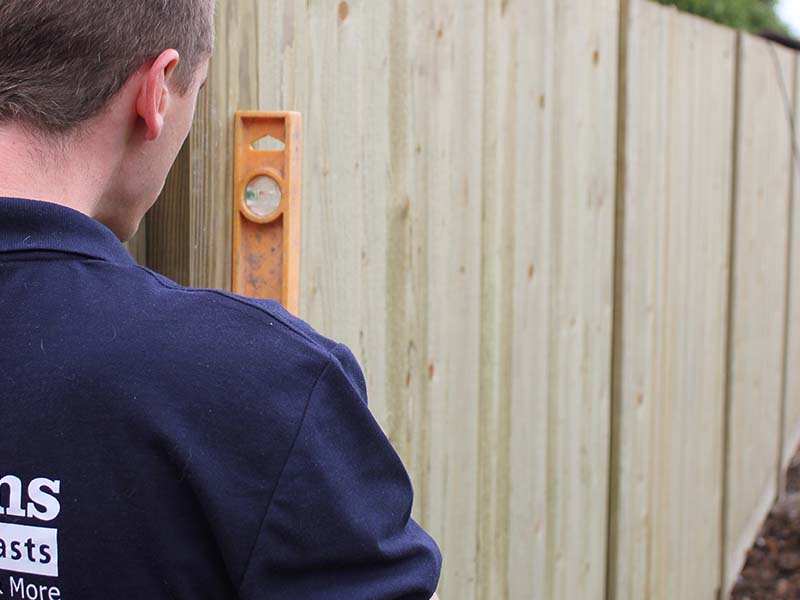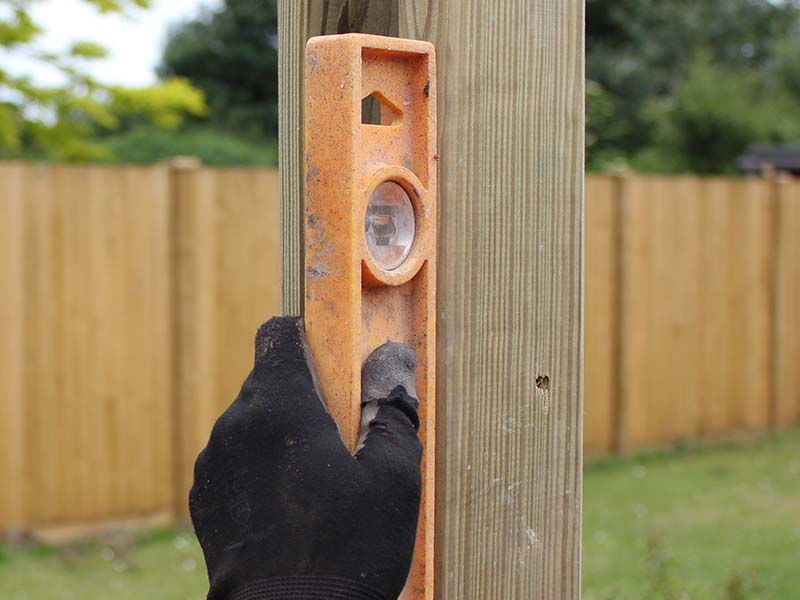06/01/2023 12:00 AM
The UK has many different soil types and depending on where you live, the soil type will affect fence post installation differently.
It should not impact the lifespan of the fence post, as long as they are treated correctly and provided with a long lifetime guarantee such as our 25 year Jakcure® guarantee.
Can wooden fence posts be installed in clay?
Yes, our fence post can be installed in clay. We have been manufacturing our high quality fencing since 1947. Throughout the years our products have been installed into all UK soil and ground types. It is not usually the ground type that causes fence failure, it’s more down to the installation. It is important that the manufacturers’ installation instructions are followed correctly with the correct drainage added at the bottom of the fence post hole and post fixing mix bevelled away from the post at ground level. Ensuring the hole sides are nice and straight will also help.

Does the soil type impact the fence install?
Whether you are installing the posts yourself or using a fence installer, the soil in your area will impact how you install a fence post and the time it will take to dig and set the posts.
Some soils may be harder to dig into which will increase the amount of time it takes to install. That’s why fence installation quotes may vary from location to location as they must factor in time on site.
Some soil types may be free draining and more compact, meaning that less post fixing mix or concrete will be required compared to a boggy peat soil.

Common ground and soil types
Chalk Soil
Coastal areas are most likely to have chalky soils. Chalky soils are difficult to dig into as hitting solid chunks of chalk can take a lot of time to break through. Rocks can be broken up using a post hole digging bar. In soils with heavy chalk concentrations, you may require mechanical support in the form of an outdoor auger drill.
However, the hard work will pay off as chalk will provide good levels of support for the fence and the ground around the concrete that will hold the post in place.
Loamy or silt soil
Loamy soils are a gardener's best friend and easy to work with for fence installers. It keeps its structure when dried but its natural softness may have an impact on the support it offers when wet. Therefore, it’s always best to go for a slightly larger footing, and to try to keep the hole sides straight. More post fixing mix or concrete may be required to adequately support the post.
Clay Soil
Clay can be both dense and hard to work with, especially when dry. Dry clay can feel like you are digging concrete. During summer months after prolonged periods of no rain, clay is the hardest to dig. Wetter months when the clay is moistened slightly will make digging easier.
Clay soils may have problems with drainage so it’s important to leave a good amount of gravel or ballast at the base of fence posts. This will ensure the base of the post does not sit in water. The post fixing mix at ground level should slope away from the post to ensure rainwater runs away from the post as well.
Clay is generally strong and will support the fence post well throughout its life.
Sandy Soil
Sandy soil is known to cause issues when digging. It is usually easy to dig but it doesn’t stick to itself like other soil types, and this makes digging a hole with nice straight sides tricky. A trick is to dampen the soil before starting and throughout digging.
When setting a fence post in sandy ground or soil, it is important that the fence or gate has adequate support. More post fixing mix or concrete may be required than other ground conditions.
Soil with gravel, rocks or lots of flint
Rocks and flint can be found in many soil types and can make digging especially difficult, as you will keep hitting pieces of rock or flint. A digging bar can be used but this can be very labour intensive. However, once installed the surrounding flint and rocks will help provide extra stability for the fence posts.

Learn how to install a fence post
We have detailed instructions on how to install a fence post. You can read them here or watch our YouTube video.
Need to know how to install a fence onto concrete? We've got your covered.